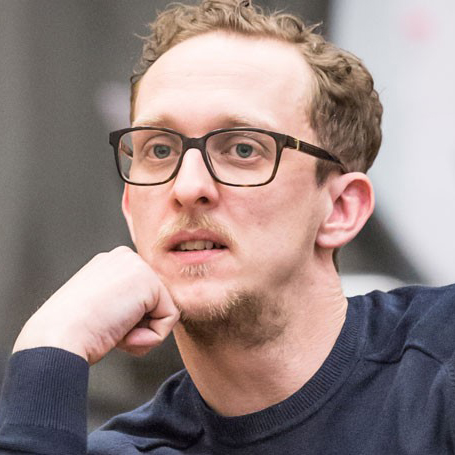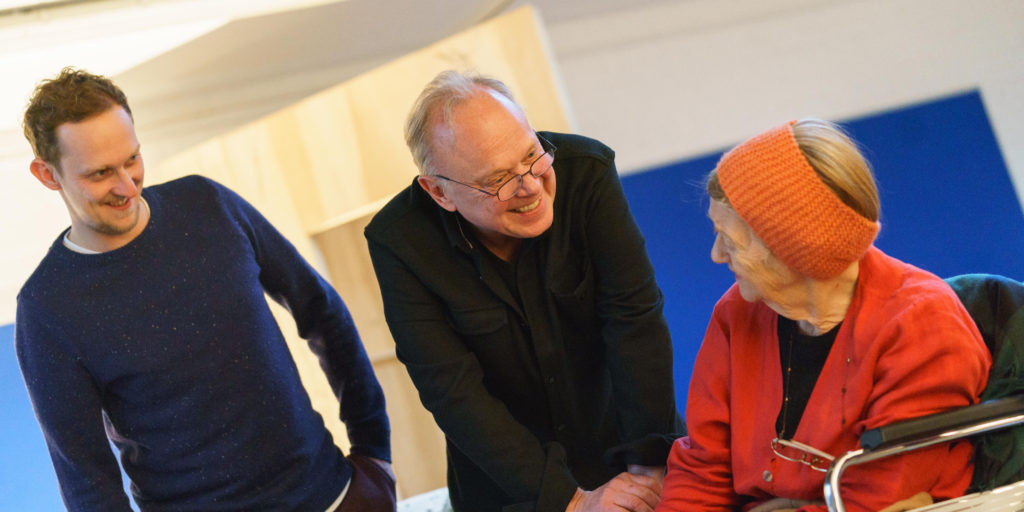
Ida has one birthday wish. Will it come true?
Ida’s family is throwing her a tea party for her eighty-sixth birthday, but their efforts to be cheerful and make the event a success verge on the desperate. Afflicted with dementia and racked with pain, Ida feels she has lived too long. As celebrations draw to a close, old prejudices and rivalries are forced into the open when the family must face the ultimate dilemma in this hilariously painful and moving picture of a family in turmoil.
A comedy about end of life sounds like a contradiction in terms, but Stephen Bill’s award winning play about the unfunny issue of the right every individual should have to depart this world with dignity, manages to tackle this very serious topic with humour and heart.
Stephen Bill won Drama Magazine’s award for Best Play, alongside Most Promising Playwright from both Evening Standard Theatre Awards and Players London Critics’ Awards for Curtains. A former Royal Court Associate Director, Lindsay Posner‘s theatre credits include The End of Longing, Speed the Plow and Hay Fever.
Ahead of Curtains which runs at Rose Theatre Kingston Thu 22 Feb – Sat 17 Mar, father and son team, playwright Stephen Bill and actor Leo Bill who plays Michael, sit down to talk about the production and what it’s like working with the family.
 Stephen Bill
Stephen Bill
Stephen, you wrote the play following a visit to your grandmother – can you tell us more about what inspired you and why?
I was very close to my grandmother and it was a visit towards the end of her life the made me write the play. I found her in the geriatric day-room of a Birmingham hospital, abandoned at a table with a bowl of cold, set porridge in front of her. It took an age for her to realise who I was but the look she then gave me said it all – she knew exactly what was happening to her and was powerless to do anything about it. Everyone talks about the quality of life; I wrote the play to address that final taboo – the quality of death.
You started as an actor then went into writing – why that leap? And what do you most like about writing or miss about acting?
It was much easier to get into acting. I had always written, but it was a private thing and I could never say, ‘I’m going to be a writer.’ I was lucky enough to get into RADA and at that time you could then go in to Rep and continue learning your craft. Years later I was at The Crucible Theatre in Sheffield and they needed a play, so I wrote one! I won a Thames Television Award to become Resident Writer, with that comes the chance to write a play for television and I was on my way. I don’t miss acting. I now know what a good actor is – and I wasn’t that good! The only loss with being a writer is that you are always on the outside – with this play thankfully it has been a wonderful experience. It’s a brilliant cast and to see them inhabit these complex characters is like magic.
How much of your family is in the characters?
There’s a lot of my wider family in the play. I have to say that I wasn’t always conscious of that when I was writing it, but when family saw the play they would say, ‘Oh that’s so and so…’ and I couldn’t deny there were elements of that person, but that was never the point or intention and some characters were definitely not family.
Even if treated with humour, some scenes in the play are quite shocking/raw – why did you decide to include them?
It’s not that I made a decision to include or exclude anything. The play is character driven and it’s the relationships that provoke the situations in the play. You put these people in a room together with the history that they share and this is what happens. All I have to do is be true to the characters I create.
Do you see yourself as an ‘activist’ in this area?
All I am is a playwright. Everything I want to say I say in the play – or, to be clearer, that is all I feel I have the authority to say. It’s an extremely complex issue morally and legally. If provoking the debate is being an activist, then yes, I am an activist.
You wrote the play over 30 years ago – has your relationship to the play changed since then? Why do you think it is still relevant today?
My relationship to the play has changed. Coming back to it I was very confused by the ages of the characters. I wrote them mainly as a group of ‘oldies’ but now I am older than most of them but I don’t feel like I am. So… much has changed, but the issues haven’t – the play feels more relevant now than ever. Because we’re living longer, because there are more and more pills to keep us alive, the baby boomers are more and more focused on the nature of their eventual demise.
Can you describe the play in five words?
A family confronts the final taboo. That’s 6!
What do you think the audience will take away from the production?
When the play was on before in both London and New York, I would sit anonymously in the bar at
the interval and I was heartened by the lack of the usual conversations about where people have
seen such and such an actor before. Instead everyone was talking about the subject matter of the
play. I hope today’s audience will similarly go home wanting to talk about something that will affect every family in the land. They should also, bizarrely, have had a good laugh – and hopefully feel all the better for it.
 Leo Bill:
Leo Bill:
Leo, how has it been working with your dad? Is this the first time?
Yeah it’s been amazing to be able to do that. It’s such a once in a blue moon event, I simply couldn’t pass that up. I was in a TV show he wrote once for the BBC called Broke but I was 8 or 9 maybe.
What is your relationship with the play?
Growing up it was very prevalent in our lives. I was 7 when it went on and later we had the Finnish or Norwegian poster on our landing. We went to New York when I was a kid when dad advised on a production the New Group did off Broadway. So it’s always been quite present.
How would you describe your role and how did you approach it? Have you discussed it with your dad?
Michael isn’t a doer. He talks it up but he’s incredibly lazy, emotionally immature and pretty lost deep down. Of course, we talked about it but I’ve been left to find it myself too.
How much of your own family do you see in the characters?
I see them pretty clearly to be honest (not sure how my Dad would answer this!?). There are traits in characters I recognise very clearly in family members which is kind of insane to be living with on stage. It’s like a perverse version of The Truman Show!
And what has it been like in the rehearsal room, working with Lindsay and the other actors?
Great. It’s a room of smart, talented, sensitive and emotionally intelligent people.
A play about assisted suicide is not an easy play, how did you approach it?
Like any play. It’s about people. Whether about this or love or money or whatever… it’s always still about people.
Have you ever thought about writing like your dad?
I do write yeah. I’m co-developing a TV series currently, and I’ll be directing a short I’ve written nearer the end of the year.
If you were to describe the play in five words what would they be?
Awkward. Close. Funny. Honest. Blunt.
Curtains is being performed at Rose Theatre Kingston from Thu 22 Feb – Sat 17 Mar.
Written by Stephen Bill and Directed by Lindsay Posner
Tickets start at £10 and are available online, rosetheatrekingston.org, by phone, 020 8174 0090, or from the Box Office.
Age recommendation: 14+
